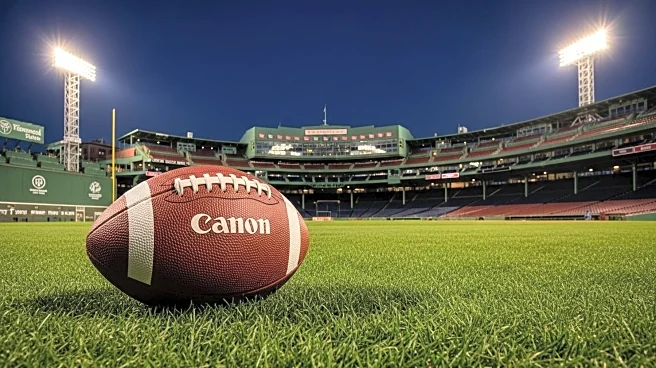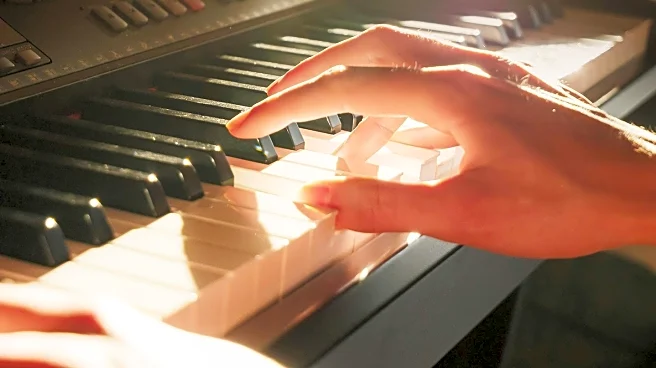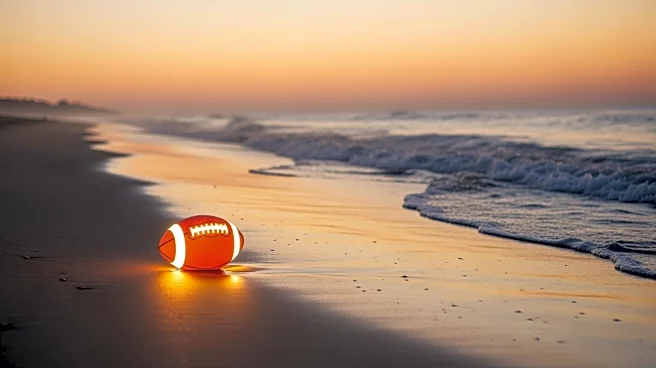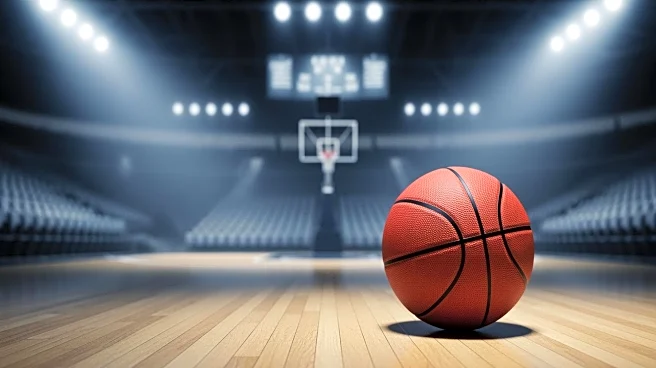What's Happening?
Harvard and Yale are set to play their 142nd football game at Fenway Park on November 21, 2026. This marks the second time the historic rivalry will be held at the iconic Boston Red Sox stadium, following a previous match in 2018. Yale currently leads the series with a record of 71-61-8, having won the last three encounters. The 2018 game at Fenway was notable as it was the first off-campus game since 1894, a year when the rivalry was so intense that Harvard considered disbanding its football program. Fenway Park, which has hosted football since 1912, continues to be a venue for various sports and cultural events.
Why It's Important?
The decision to host the Harvard-Yale game at Fenway Park underscores the significance of this historic rivalry in college football. It highlights the enduring appeal and tradition of Ivy League sports, drawing attention to the cultural and historical aspects of the game. The event is likely to attract significant media coverage and fan interest, contributing to the local economy and reinforcing Boston's status as a major sports hub. The game also serves as a reminder of the deep-rooted traditions in college sports, which continue to captivate audiences and foster community spirit.
What's Next?
As the date approaches, preparations for the game will likely intensify, with both universities and Fenway Park management coordinating logistics to accommodate fans and media. The event may prompt discussions on the future of Ivy League sports and the potential for more off-campus games. Stakeholders, including alumni and local businesses, may engage in promotional activities to maximize the event's impact. The game could also influence future scheduling decisions for other historic rivalries, considering the success of hosting such events at iconic venues.
Beyond the Headlines
Hosting the game at Fenway Park may spark conversations about the commercialization of college sports and the balance between tradition and modernity. It raises questions about the role of historic venues in preserving sports heritage while adapting to contemporary demands. The event could also influence how universities leverage sports for branding and community engagement, potentially setting a precedent for other institutions seeking to enhance their visibility through strategic partnerships with iconic locations.









